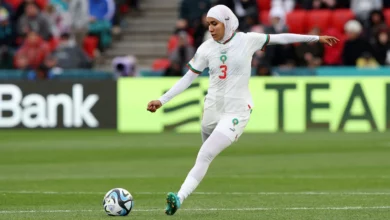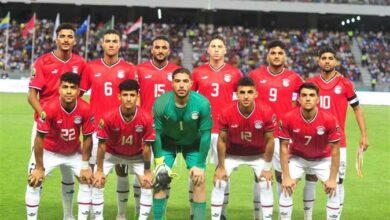Rabat, Morocco – Moroccans will vote Friday on a new constitution that the king has presented as wide-ranging reform, even as activists maintain it simply perpetuates an autocracy.
Like all referendums in the North African country, the measure is likely to pass, buoyed by King Mohammed VI’s continuing religious and political legitimacy and a huge media campaign.
Morocco, like the rest of the Middle East, was swept by pro-democracy demonstrations at the beginning of the year, protesting a lack of freedoms, weak economy and political corruption.
The monarch, however, seems to have managed the popular disaffection by presenting a new constitution that guarantees the rights of women and minorities, and increases the powers of the parliament and judiciary, ostensibly at the expense of his own.
Protests have continued nevertheless and the 20 February pro-democracy movement has called for a boycott and insists that the new constitution leaves the king firmly in power and will be little different from its predecessor.
Their voices have been drowned out, however, as nearly every political party, newspaper and television station has for the past several weeks pressed for Moroccans to vote in favor of the constitution.
On the eve of the referendum, a pro-democracy demonstration of a few hundred people was swamped by thousands of government supporters bussed in for the occasion wearing matching T-shirts supporting the constitution.
The activists had to take refuge in a gas station under the protection of police while they were hounded by the raucous pro-government demonstrators who threw eggs at them and called them “traitors” and “agents.”
During the weekly prayers on 24 June, imams in the mosque read out sermons issued by the government urging Moroccans to vote yes as an act of faith.
In cities around the country, banners paid for by local merchants exhort people to come out and vote, a practice seen throughout the Arab world when governments call a referendum and local businessmen want to stay in the good graces of officialdom.
Most observers agree that the real signs of change for Morocco will come after Friday’s referendum with how the new constitution is implemented.
“We say yes to the constitution, but how it turns out in practice, well that’s another struggle,” said Saadeddin al-Othmani, a top official in the Islamist Development and Justice Party, which like most political parties supports the new constitution.
Othmani sees it as a beginning of reform and Morocco’s own way of responding to the Arab Spring – not by toppling their leader or repressing the people, but through gradual measures.
“The demonstrations for February 20 have to continue,” he said. “The constitution is not complete and there are still certain things that need to be changed.”
The pro-democracy 20 February movement, and the groups that support it, including smaller labor unions, leftist parties and the country’s banned Justice and Charity Islamist movement, lack Othmani’s faith in the process.
They see the king’s March 9 speech and three-month consultation period before the new constitution was presented 17 June as the latest in a long line of cosmetic touches to an absolute monarchy.
“We want to liberate the country from the state’s monopoly on politics and economy,” said Mohammed Lekrari, a leader of the Democratic Confederation of Labor, a union representing around 800,000 public sector workers. “We would like to leave the Middle Ages.”
There is a whiff of medieval in the frenzied hype around the need for a yes vote, says his colleague Othmane Baqa, because a vote for a constitution is being seen as a vote for the king – like the oath of allegiance, the “baya,” given to Muslim kings for hundreds of years and still practiced annually in Morocco.
“They want this baya through the referendum, so all Morocco must swear allegiance,” he said. “It becomes a vote for unity and the king.”
The labor activists say they were attacked by the king’s supporters when they tried to promote the idea of boycott on the streets, though later on Wednesday a march through downtown distributing pro-boycott fliers went undisturbed.
Referendums in the Middle East have never failed and usually pass with stunning landslides, especially in more autocratic states. But what counts in this case is the turnout.
“They could win but still lose politically, which is to say through participation,” said Maati Monjib, a political analyst at Rabat’s Mohammed V University. “If less than half participate, it makes them look weak.”
TV stations carried interviews with people calling for a “no” vote, while a government directive banned any discussions about a boycott.
The constitution leaves most of the king’s powers intact, namely making him the head of the army, religion and security and giving him a practical veto over the prime minister’s actions. But Monjib said its flaws are in what it doesn’t say.
While Moroccans revere their king, many despise the coterie of political advisers around him – widely believed to be the real force running the country instead of the elected parliament and cabinet.
“The constitution does not talk about the counselors of the kingdom, which suggests it won’t be respected,” said Monjib. “For the constitution the counselors don’t exist and yet they are the ones with the real power.”
However, the new document could lay the groundwork for more democracy in Morocco and pave the way for an empowered prime minister and parliament, Monjib suggested.
For Rachid Aboul-Hassan, a wizened cab driver steering his battered blue hatchback through Rabat, the constitution is less about democracy than about the person behind it.
“I support the king, he keeps Morocco safe. It is not like Algeria and Yemen, it’s stable here,” he said, echoing a widespread unease over the unrest elsewhere in the Arab world. “There are problems here, but we are taking small steps, slowly.”




